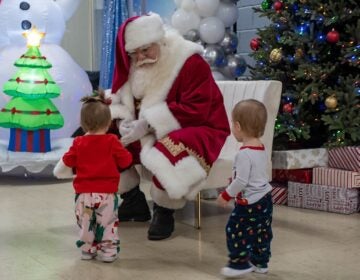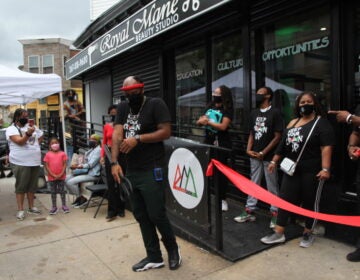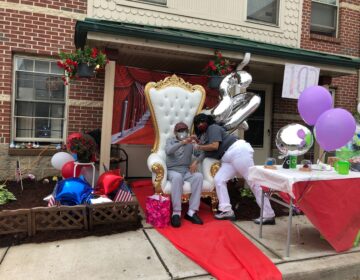Rethinking fatherhood, one day at a time
The men of The Fathering Circle are taking on #MeToo and their own fathers to reckon with their past and reimagine parenting.
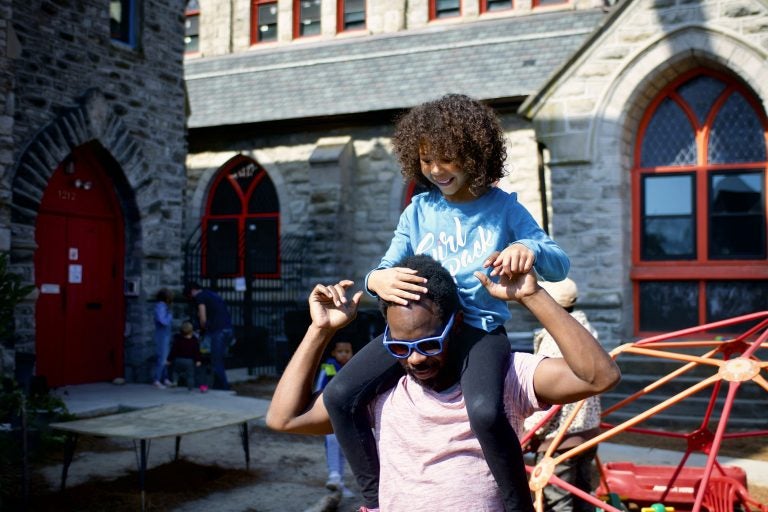
Aliyah, 8 and father, Kalif Troy, of West Philadelphia, participate in a play date with the Fathering Circle on Saturday, October 12, 2019. (Bastiaan Slabbers for WHYY)
On a recent Saturday morning, Aaron, 8, went with his dad to a playdate in a West Philadelphia playground.
“Argh!” he growled. “Please help me!”
Right next to the sandbox, Aaron suddenly died, became a zombie, and his eye fell out of his head. His father and some of the other dads came to look him over.
“Did his eye fall out again?” asked his father, Eric Marsh.
“Eye fell out. It’s a very advanced case,” said Billy Yalowitz. “He was dead for a while, then woke up, scared me like zombies will.”
Marsh interrupted: “Just spit on it and put it back in.”
Miraculously, Aaron recovered shortly thereafter.
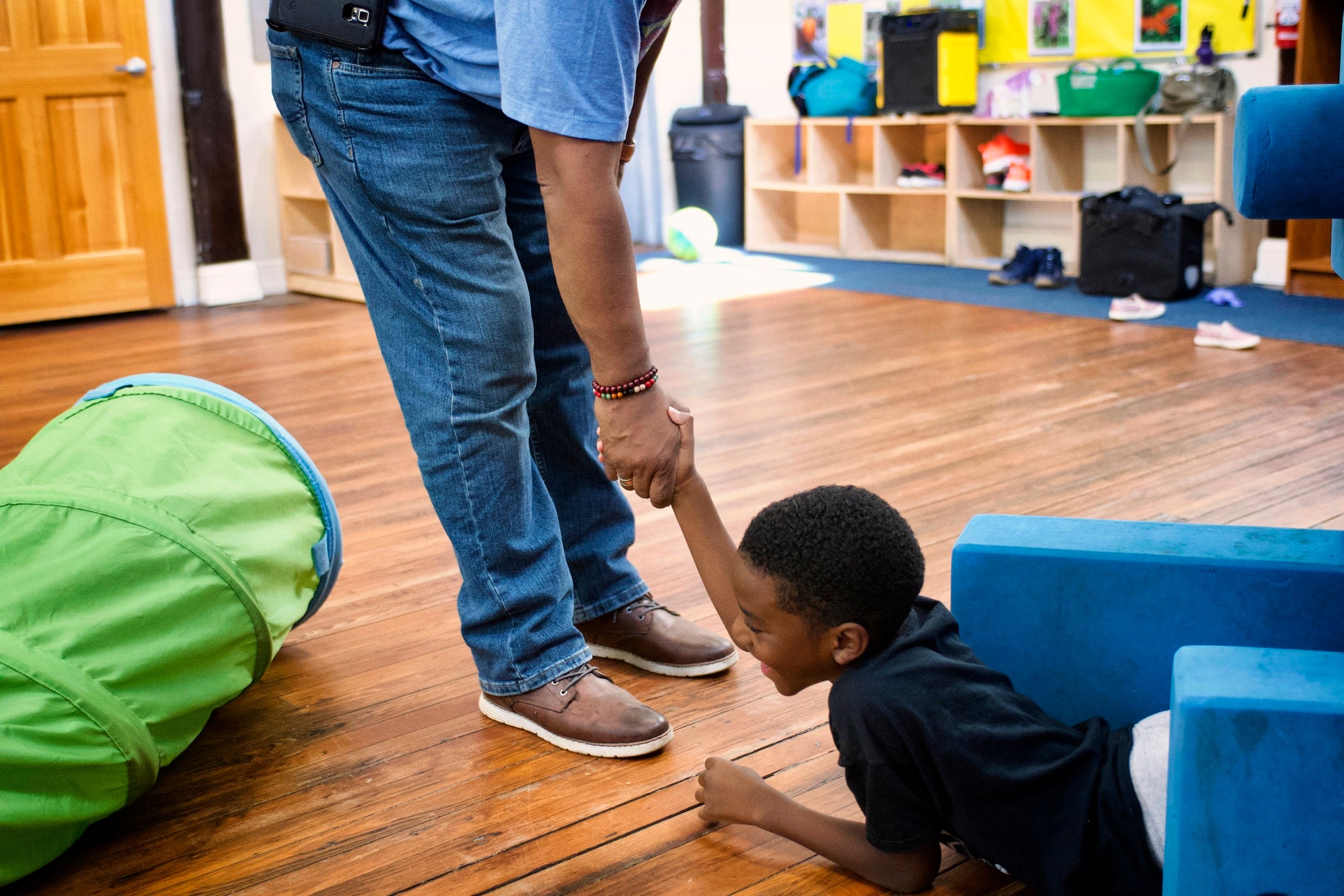
This isn’t just any playdate. It’s a structured one by a men’s support group, The Fathering Circle, starting with open play then moving onto “special time.”
“Special time is a time when dads put away your phone, put all your attention on your child so they can feel how connected you are to them, and how you want to follow their mind and what they are interested in doing,” explained Yalowitz to the group.
During special time the child leads. The dad has to do whatever his son or daughter wants, as long as no one gets hurt.
One girl, Aliyah, 8, immediately wanted to be hoisted on her father’s shoulders and have him jump around like a kangaroo.
“I don’t physically have the ability to…” began her father, Kalif Troy.
“Daaaaaad,” insisted Aliyah. Troy ultimately relented.
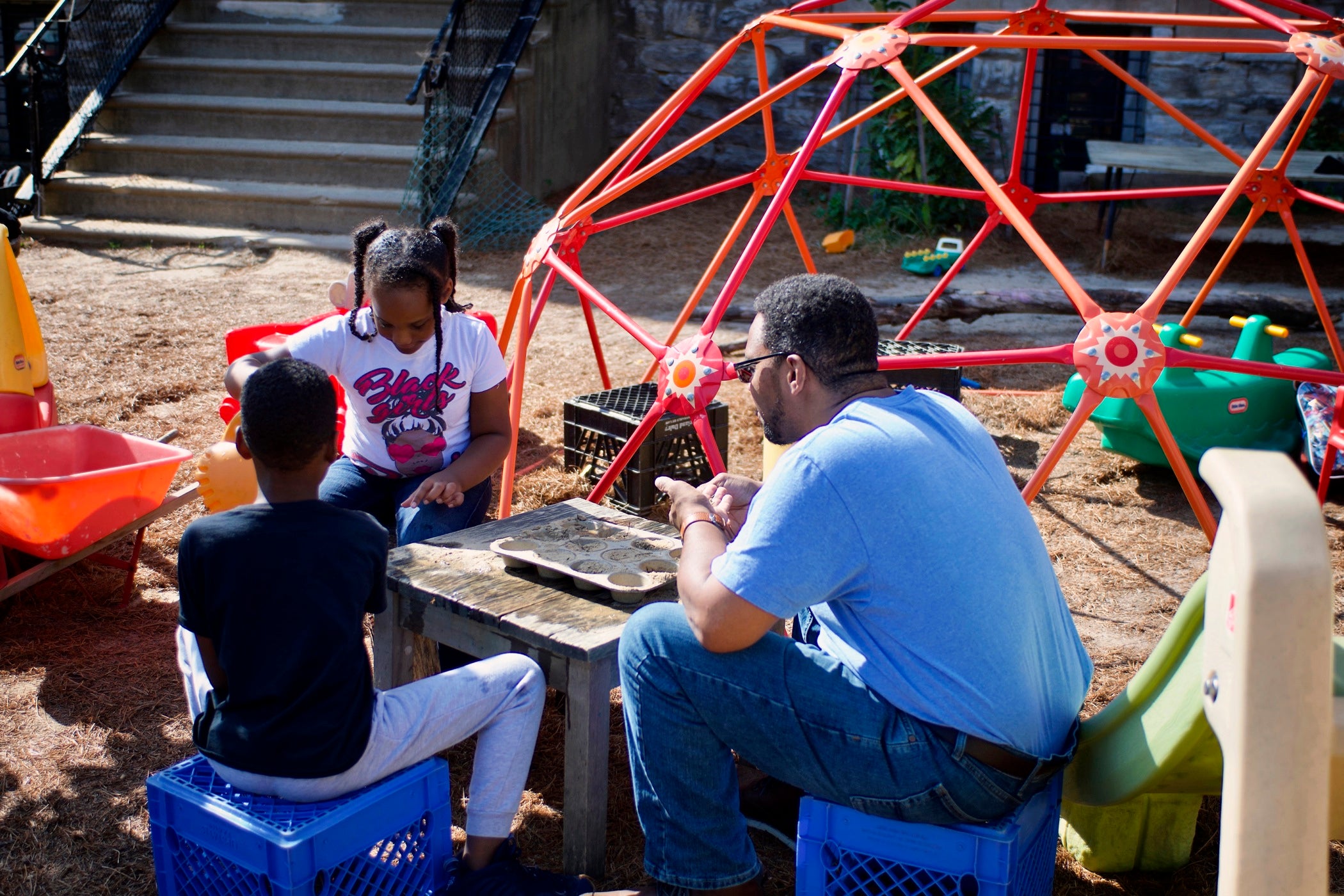
The rule that no one gets hurt was pushed. One dad swung his daughter like a baseball bat as another kid pitched plush balls at him. “Do it again! Do it again Do it again!” pleaded the girl.
Troy and Aliyah ultimately engaged in a rowdy game of dodgeball, frantically hurling at each other anything with a rounded shape they could get their hands on.
No one got hurt, but everyone got tired. After the hurly burly was done all the dads and kids sat in a circle to talk about what they did during the playdate, signaling its end. Aliyah sat on her father’s lap with her arms around his neck, panting.
Although the fathers are not always entirely comfortable letting their young children call the shots, there is a point to special time.
“You step into the place of the child, eye-to-eye with the child and see where their mind is,” said Marsh, one of the co-creator of the Fathering Circle. “It is important. Not just because it’s a type of play. It’s important because it gives the father the ability to see their child as a fully formed human being.”
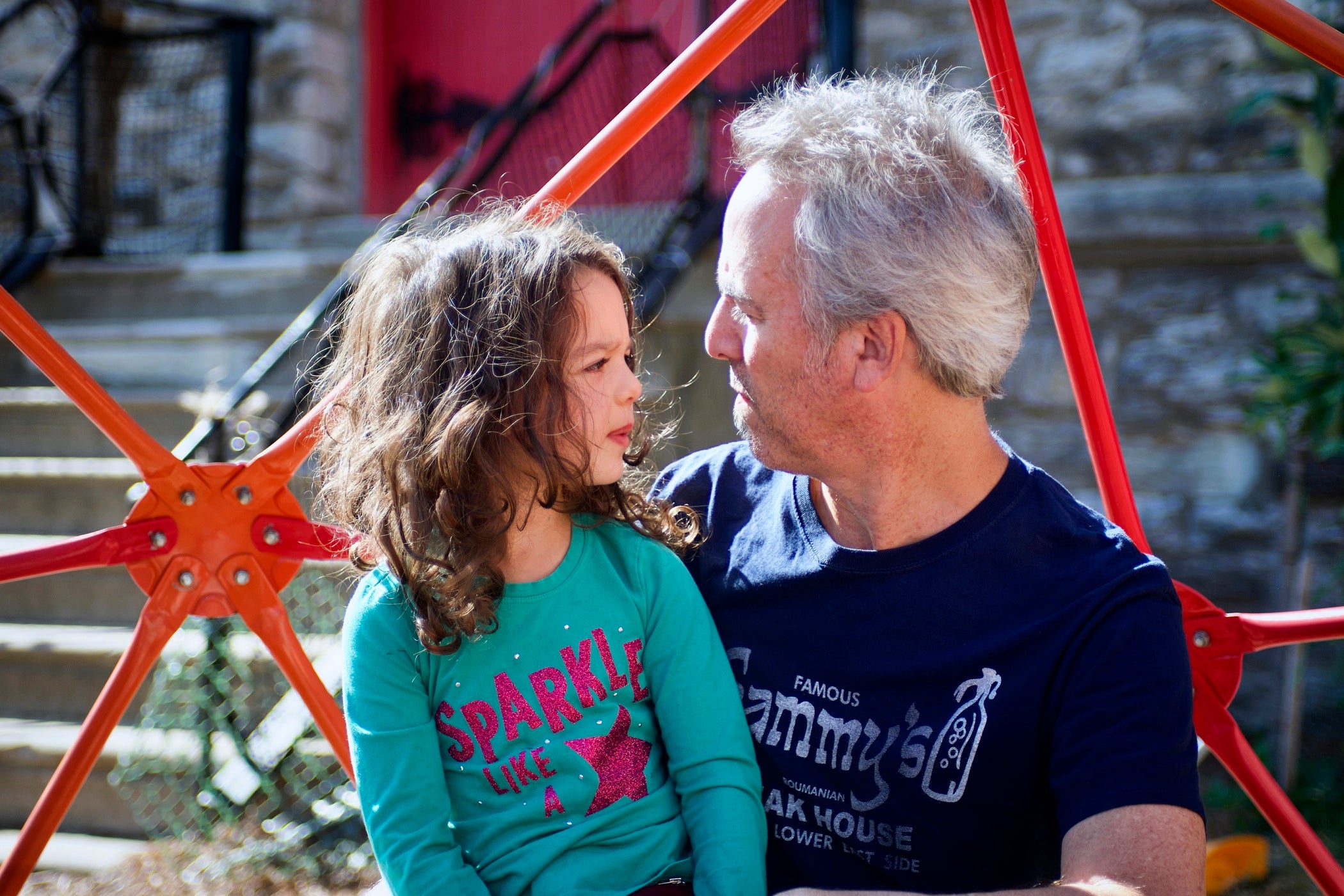
Talking to father better
The Fathering Circle is an informal group of men who get together to consider what they are doing as fathers and how they might do it better. It started out as an art project, as men who recently became fathers started seeking each other out, to commiserate.
They made a couple of films, then became part of a large community art project at the Philadelphia Art Museum called Philadelphia Assembled, where they put together a performance and symposium.
This week, the Fathering Circle is hosting a workshop as part of “Men and #MeToo,” a national conference taking place in Philadelphia to help individuals and company HR departments orient themselves to the #MeToo movement.
Between public projects, the Fathering Circle continues the groundwork of meeting every other week. Once a month on a weekday night they gather in Yalowitz’s for a couple hours. Over the four years he’s been hosting the group he says nearly 100 men have passed through. Over the years fathers have come and gone, and come back again depending on how much time they can spare.
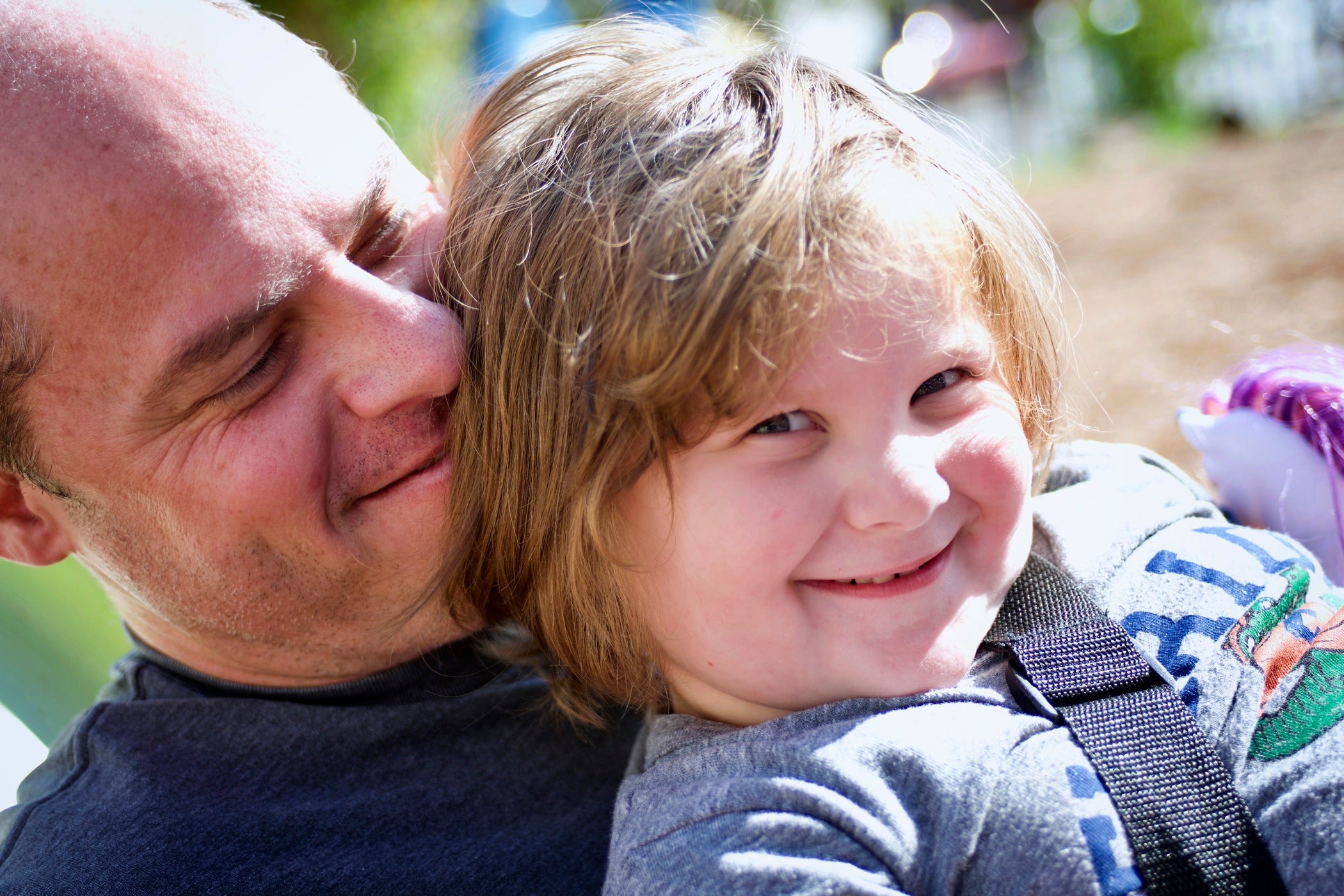
A meeting a few weeks ago brought a diverse bunch, with a few white guys, a couple African Americans, and a father of Latino background. They embrace each other as they came in the door.
They talk about fathering: what’s worked, what hasn’t. A lot hinges on small things: like when tickling is fun and when it becomes non-consensual. Should you roughhouse with your daughter as much as your son? Should you dress your daughter in pink?
Every day fathers make seemingly innocuous decisions that might have unintended consequences. Yalowitz said he is rethinking how to talk to his daughter when it’s time for the grandparents to leave after a visit.
Should it be “give grandma a hug” or “you want to say goodbye to grandma?” he asked. “How do you want to say goodbye to grandma? It’s very different than, it’s open season on somebody else’s desire for affection of reassurance.”
Yalowitz is encouraging his daughter to choose whether she hugs her grandmother. He wants to teach her that she doesn’t owe anyone her physical affection, even her grandparents.
Does that upset Yalowitz’s parents? Of course it does.
“I would rather make sure that she knows that she’s in charge of her body than whatever hurt feelings might happen with an adult,” he said. “Doing the obligatory thing does send a message about consent.”
“That is so automatic,” said Les Rivera in the circle. Rivera is a filmmaker and another co-founder of the group. “I’m so glad you’re talking about this.”
Part of the purpose of the group is for fathers to rethink the way they were brought up, in some ways undo the perceived sins of their fathers. Although the project began before the #MeToo movement broke, the men felt a need to help one other shift prevailing cultural values about gender roles.
“We’ve discovered that fatherhood is a really good time in life. The veil thins; things come to the surface. Our hearts are on our sleeves,” said Yalowitz. “We try to see fathering as a force for transformation in society, for liberation for ourselves and our children.”
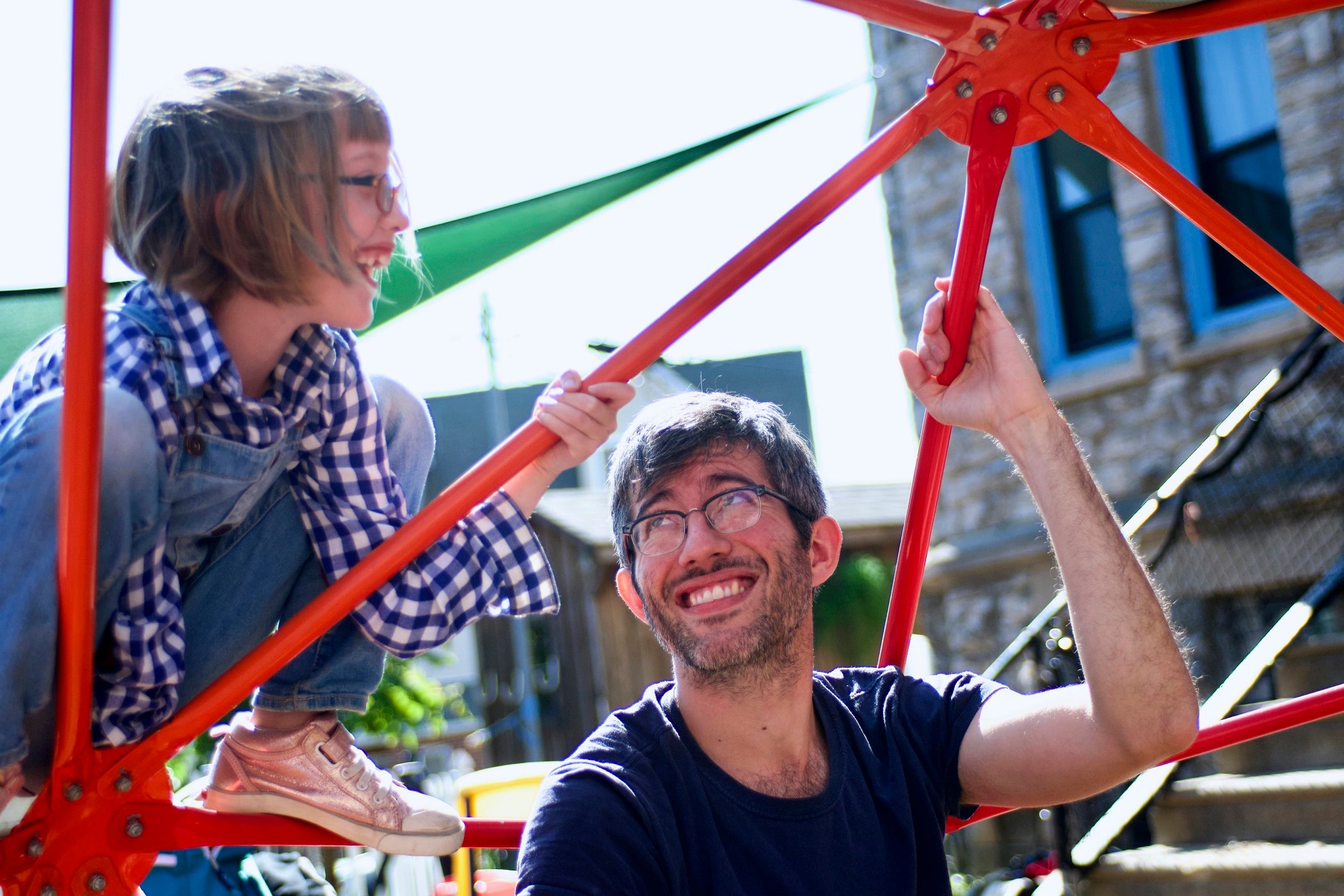
One of many Philly groups
Philadelphia is something of a hotbed of male support groups, according to Rita DiMaria of the Council for Relationships, a nonprofit therapy organization. Programs receiving public funding are the easiest to track, mostly offering like job training and job placement for low-income fathers.
The Philadelphia Health Management Corporation offers a program Focus on Fathers. The Philadelphia prison system offers a Fatherhood Enrichment program for formerly incarcerated men re-entering society.
There is also a net of less formal fathering groups scattered in neighborhoods across the city, like the Fathering Circle, that exist without resources, instead driven by the members of the group.
Many social assistance programs, like TANF and child support, put a price tag on fathers, enforcing the notion that a stable family depends on a father bringing in money. DiMaria says the same end can be achieved if you train men to be loving parents.
“If men bond with their children, just like mothers bond with their children, there’s a greater likelihood that that father is going to stay connected to the child,” said DiMaria.”If the father stays connected to the child, chances are he is going to have motivation to try to maintain some stability.
One of the members of the Fathering Circle, Miguel Horn, is the father of two young children. He’s an artist who recently sculpted a large-scale bust of his father out of clear acrylic. Several weeks ago he installed the eight-foot head in the Delaware River, moored to the docks behind the Independence Seaport Museum as part of its FLOW outdoor art exhibition.
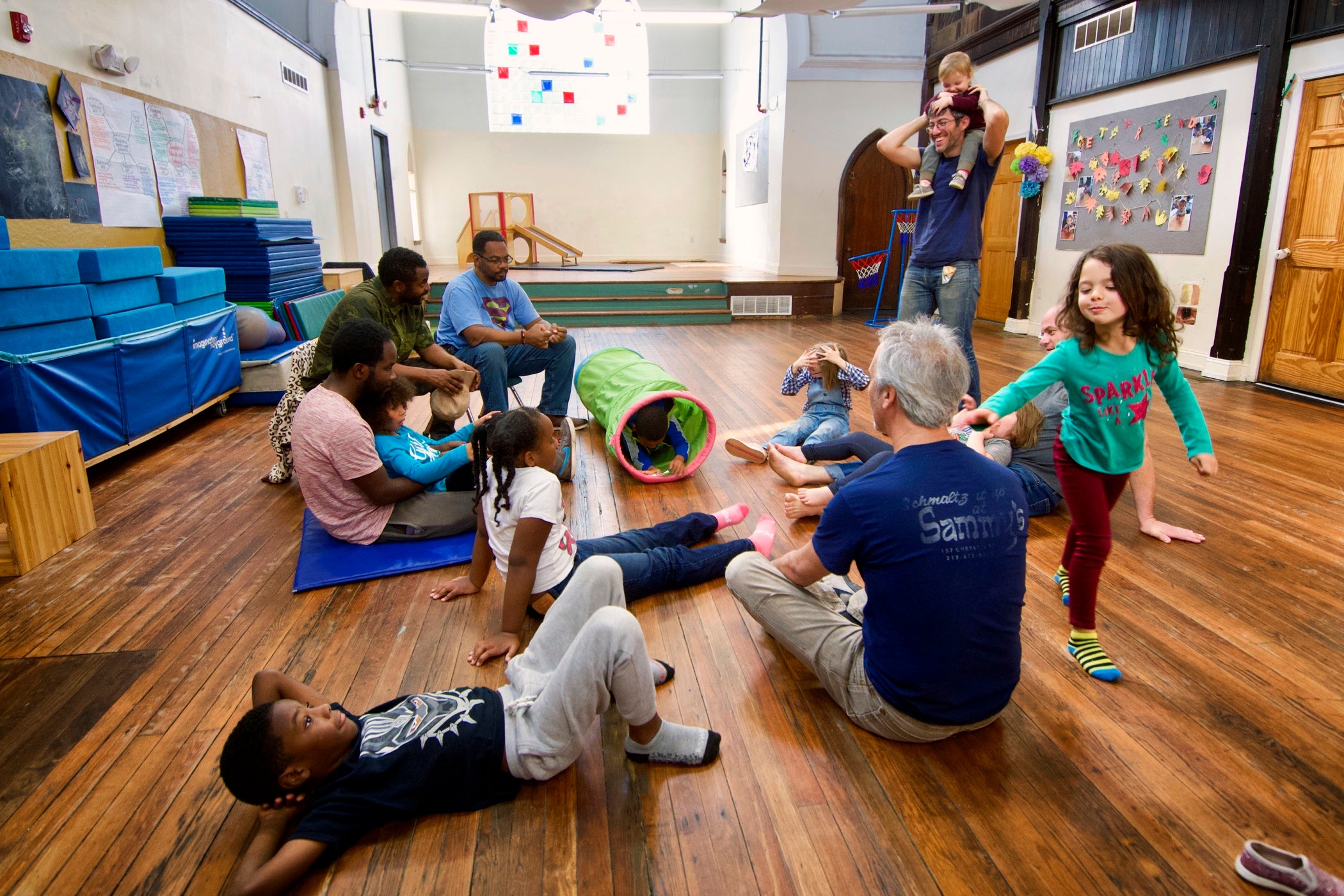
“I actually sculpted this portrait years ago of my father,” said Horn. “As I became a dad myself and seen his role as a grandfather, it’s allowed me to see him as a much more multifaceted person than just my father.”
The work Horn has been doing with the Fathering Circle is reflected in his art. The face of his father is obscured by water as the tide rises, then revealed again as the tide falls.
He says the piece is both a monumental tribute to his father and a way to overcome his legacy.
“We do need to socialize our kids differently then how we were raised,” said Horn, who grew up in a very male household with two brothers. “There were mistakes made in our parent’s generation. I understand how that has formed me as a person and how I instinctively react to my kids. And I catch myself.”
After a few weeks moored to a dock in the Delaware, Horn’s sculpture of his father succumbed to the power of the river. An unusually powerful storm broke the head off his pedestal and crushed it into four parts. Last week he fished the pieces out the river with the help of a chain winch.
The broken sculpture could be read as another metaphor for fatherhood: no matter your best-laid plans things will fall apart.
Horn says he can repair the sculpture of his father — “Humpty Dumpty,” he said — but it will bear scars.
WHYY is your source for fact-based, in-depth journalism and information. As a nonprofit organization, we rely on financial support from readers like you. Please give today.



